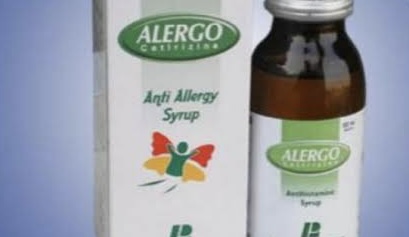The National Agency for Food and Drugs Administration and Control (NAFDAC) has warned Nigerians against five contaminated syrups detected in the Maldives and Pakistan.
In a public alert, Mojisola Adeyeye, NAFDAC director-general (DG), said the five products are Alergo Syrup, Emidone Suspension, Mucorid Syrup, Ulcofin Suspension and Zincell Syrup.
Adeyeye alerted that 23 batches of the products are contaminated with harmful chemicals.
According to the NAFDAC DG, the contaminated products have also been detected in Belize, Fiji and Lao People’s Democratic Republic.
Adeyeye added that a manufacturer, based in Pakistan — Pharmix Laboratories Limited is responsible for the products.
“In November 2023, samples of five different batches of ALERGO syrup were screened for non-compliance by the quality control laboratory of the Maldives Food and Drug Authority (MFDA) in accordance with the thin layer chromatography (TLC) test for Diethylene Glycol and Ethylene Glycol for inclusion in The International Pharmacopoeia,” the alert reads.
“The routine screening detected potentially unacceptable amounts of diethylene glycol and ethylene glycol as contaminants.
“Laboratory testing conducted by the Therapeutic Goods Administration of Australia (TGA) confirmed that all five batches were contaminated with ethylene glycol at levels ranging from 0.62 to 0.82% w/w relative to the accepted limit of not more than 0.10% w/w.
“A follow-on inspection of PHARMIX LABORATORIES (PVT.) LTD was conducted by the Drug Regulatory Authority of Pakistan (DRAP).
“According to DRAP, a review of the manufacturing facility and manufacturing records suggested that diethylene glycol/ethylene glycol as contaminants may be present in other products and batches manufactured by Pharmix.
“Although these products are not registered by NAFDAC, they may have been distributed, through formal and informal markets, to other countries or regions, including Nigeria.
“NAFDAC implores importers, distributors, retailers and consumers to exercise caution and increase vigilance within the supply chain to avoid the importation, distribution, sale and use of the substandard cough syrups.”

